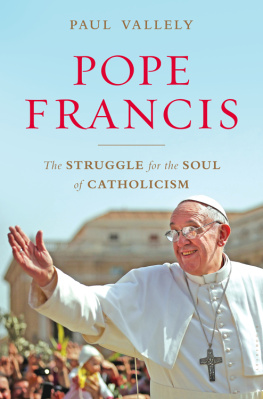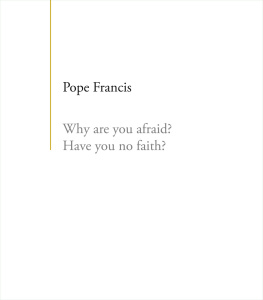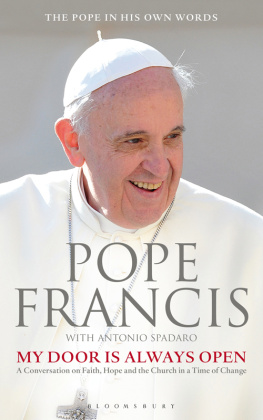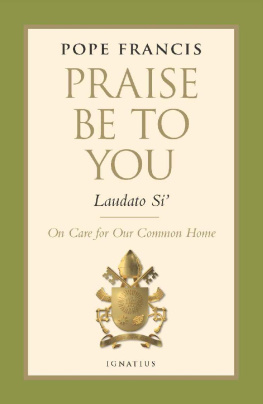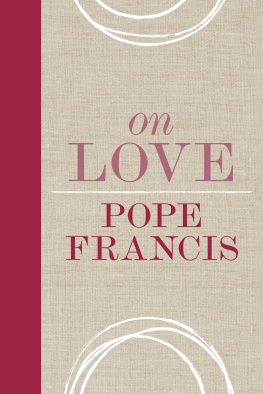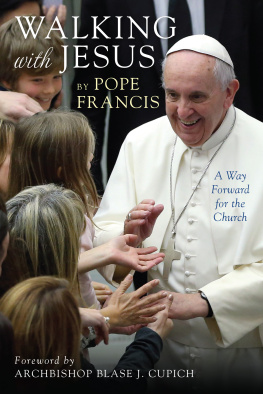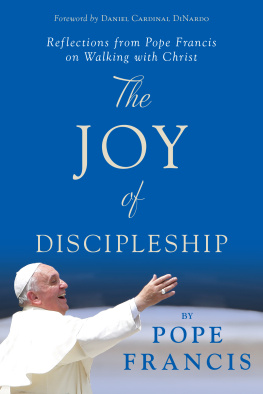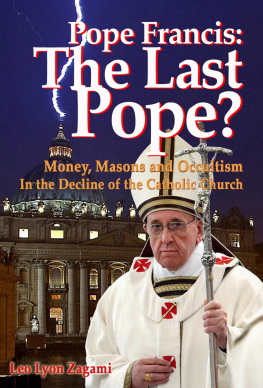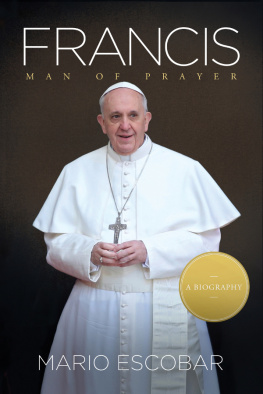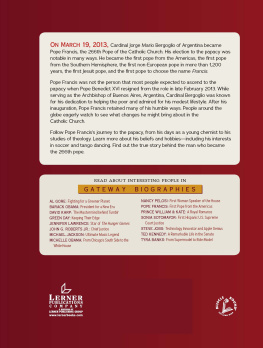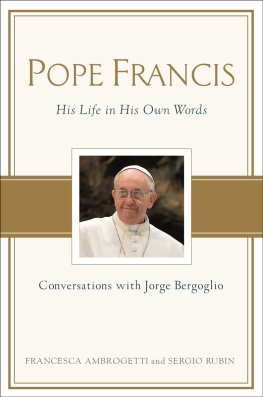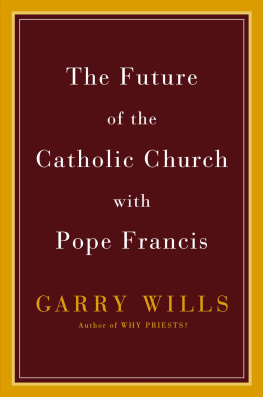Pope Francis - Pope Francis : untying the knots : the struggle for the soul of Catholicism
Here you can read online Pope Francis - Pope Francis : untying the knots : the struggle for the soul of Catholicism full text of the book (entire story) in english for free. Download pdf and epub, get meaning, cover and reviews about this ebook. year: 2015, publisher: Bloomsbury Publishing;Bloomsbury USA, genre: Detective and thriller. Description of the work, (preface) as well as reviews are available. Best literature library LitArk.com created for fans of good reading and offers a wide selection of genres:
Romance novel
Science fiction
Adventure
Detective
Science
History
Home and family
Prose
Art
Politics
Computer
Non-fiction
Religion
Business
Children
Humor
Choose a favorite category and find really read worthwhile books. Enjoy immersion in the world of imagination, feel the emotions of the characters or learn something new for yourself, make an fascinating discovery.
- Book:Pope Francis : untying the knots : the struggle for the soul of Catholicism
- Author:
- Publisher:Bloomsbury Publishing;Bloomsbury USA
- Genre:
- Year:2015
- Rating:5 / 5
- Favourites:Add to favourites
- Your mark:
Pope Francis : untying the knots : the struggle for the soul of Catholicism: summary, description and annotation
We offer to read an annotation, description, summary or preface (depends on what the author of the book "Pope Francis : untying the knots : the struggle for the soul of Catholicism" wrote himself). If you haven't found the necessary information about the book — write in the comments, we will try to find it.
For the past two years Pope Francis has enchanted and bewildered the world in equal measure with his compassion and his contradictions. Expanding greatly on his acclaimed earlier book Pope Francis: Untying the Knots, Paul Vallely reexamines the complex past of Jorge Mario Bertoglio and adds nine new chapters, revealing many untold, behind-the-scenes stories from his first years in office that explain this Pope of paradoxes.
Vallely lays bare the intrigue and in-fighting surrounding Franciss attempt to cleanse the scandal-ridden Vatican Bank. He unveils the ambition and arrogance of top bureaucrats resisting the Popes reform of the Roman Curia, as well as the hidden opposition at the highest levels that is preventing the Church from tackling the sex abuse crisis. He explains the ambivalence of Pope Francis towards the role of women in the Church, which has frustrated American Catholic women in particular. And Vallely charts the battle lines that are being drawn between Francis and conservatives and traditionalists talking of schism in this struggle for the soul of the Catholic Church. Consistently Francis has show a willingness to discuss issues previously considered taboo, such as the ban on those who divorce and remarry receiving Communion, his liberal instincts outraging traditionalists in the Vatican and especially in the Church hierarchy in the United States. At the same time, many of his statements have reassured conservative elements that he is not, in fact, as radical as he might appear.
Behind the icon of simplicity that Pope Francis projects is a steely and sophisticated politician who has learned from the many mistakes of his past. The Pope with the winning smile was previously a bitterly divisive figure. In his decade as leader of Argentinas Jesuits left that religious order deeply split. His behavior during Argentinas Dirty War, when military death squads snatched innocent people from the streets, raised serious questions. Yet after a period of exile and what he has revealed as a time of great interior crisis he underwent an extraordinary transformation--on which Vallely sheds new and fascinating light. The man who had been a strict conservative authoritarian was radically converted into a listening participative leader who became Bishop of the Slums, making enemies among Argentinas political classes in the process.
Charting Franciss remarkable journey to the Vatican and his first years at work there, Paul Vallely has produced a deeply nuanced and insightful portrait of perhaps the most influential person in the world today. Pope Francis, he writes, has not just demonstrated a different way of being a pope. He has shown the world a different way of being a Catholic.
Pope Francis: author's other books
Who wrote Pope Francis : untying the knots : the struggle for the soul of Catholicism? Find out the surname, the name of the author of the book and a list of all author's works by series.

